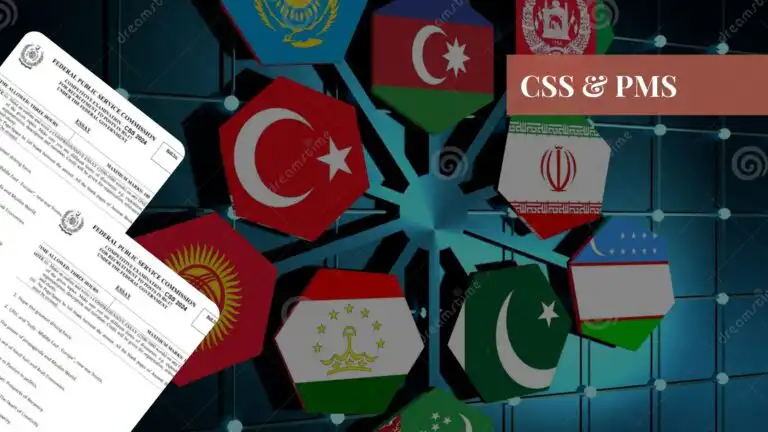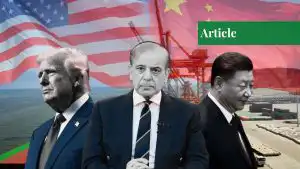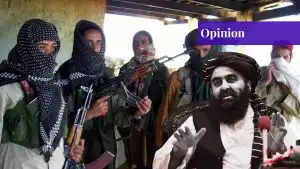Introduction
One of the oldest regional intergovernmental organizations in Asia, the Economic Cooperation Organization (ECO) was formed in Tehran on July 15, 1984. It was established by restructuring and reforming its predecessor, Regional Cooperation for Development, through a trilateral effort of Pakistan, Iran, and Turkey. ECO’s primary objectives focus on promoting regional trade, bolstering economic development, and fostering cultural links among member states.
Using the existing channels of historical affinity and brotherhood, ECO sought to establish trade and connectivity and strengthen cultural bonds in the region. Its headquarters or “secretariat” is located in Tehran.
ECO Member States
Among the member states, there are 10 countries-Pakistan, Iran, Türkiye, Azerbaijan, Afghanistan, Kazakhstan, Kyrgyzstan, Tajikistan, Turkmenistan, and Uzbekistan. These countries are located in various parts of the world encapsulating West and South Asian region, the Caucuses, and Central Asia.
ECO Observer States
Moreover, the Turkish Republic of Northern Cyprus, the Organization of Turkic States, and the International Energy Charter are observers within the ECO.
Structure
- Heads of State/Government
- Council of Ministers (COM)
- Regional Planning Council (RPC)
- Council of Permanent Representatives (CPR)
- ECO Secretariat
Historical Background
The failure of the Regional Cooperation for Development (RCD) to meet its goals and objectives led to rethinking among members to establish a new body built on shared history of kinship and fraternity among founding members.

Owing to political instability and turbulent events such as the Islamic Revolution in Iran (1979) and the Soviet Invasion of Afghanistan (1979), dreams of a regional economic body collapsed in the 1980s. In 1985, ECO was born out of the ashes of RCD in Tehran.
Evolution of the Economic Cooperation Organization
Once again after its revival in 1985 into a new intergovernmental organization, ECO became functional through the concerted efforts of the founding members and their commitment to enhance economic cooperation. Furthermore, seven more members from the Central Asian Republics and West Asia joined the organization by signing the Treaty of Izmir (1982). These countries included five Central Asian nations, including Kazakhstan, Kyrgyzstan, Tajikistan, Turkmenistan, and Uzbekistan. Afghanistan and Azerbaijan also came along.
Significance
ECO is a significantly important organization due to several factors. First, the ECO region covers an area of around 8 million km2, nearly double the territorial size of the European Union. It also comprises 6.6.% of the world population which is roughly half a billion or so. Second, the region has a huge wealth of natural resources, an unmatched geo-strategic location, and a rich cultural, philosophical, and linguistic heritage.
Third, ECO is at the core of one of the world’s most geopolitically tense and significant landmasses, sharing a border with Russia, China, the Indian Ocean, the Persian Gulf, and the Caspian Sea. Last but not least, the Silk road which passes through the modern ECO region has been at the crossroads of travelers and tradesmen.
Areas of Cooperation
ECO’s areas of cooperation include transport, energy, telecommunications, agriculture, and more.
Working Principles and Objectives
ECO’s primary objectives encapsulate various areas including socio-economic development, effective multilateralism, economic integration, trade liberalization, agricultural cooperation, energy export, and telecommunication networks. It also aims at the joint welfare and well-being of the member states.
In simple words, ECO was established to promote economic prosperity in the region through the building blocks of trade, connectivity, tourism, energy, and cultural cooperation.
Achievements
- Adoption of ECO Vision–2025 and the Islamabad Declaration
At ECO Summit 2017 in Islamabad, members unanimously agreed on ECO Vision-2025 setting guidelines and objectives of the organization until 2025 highlighting core principles of sustainability, integration, and a conducive environment.
In addition, the Islamabad Declaration, signed at the same summit, set a comprehensive agenda for regional peace which contains the salient points of cooperation among the members of ECO in connectivity, trade, transport, and energy fields.
- Outlet for Trade and Transit
ECO is a useful trade and transit outlet for resource-rich yet land-locked countries of central Asia to access international waters in the Indian Ocean and the Arabian Sea through Iran and Pakistan. Moreover, the ECO-Trade Agreement (ECOTA) and Transit-Transport Framework Agreement (TTFA) facilitated trade and fostered a corridor-based approach toward transit and transport connectivity by removing non-physical barriers such as mutual recognition of driving licenses and issuance of multiple entry visas for transport operators, etc.
Additionally, ECO’s Permanent Commission on Transport and Communications (PCTC), a multi-modal transport project, is in progress to provide competitive access to exporters from the CARs by reducing idling time at points of entry and exits along the borders of member states and their neighbors.
- Reconstruction and Development of Afghanistan
ECO initiated several measures for the reconstruction of war-torn Afghanistan in the aftermath of the War on Terror and Decades of Civil Strife among various groups. It established a fund named the Special Fund for Reconstruction of Afghanistan (2004) for humanitarian assistance. Moreover, an Advocacy Program for Afghanistan (2017) was formed to help develop infrastructure, build capacities, and promote trade & tourism and cooperation in customs-related matters.
The ECO Special Conference on Afghanistan (2022) passed a unanimous resolution to implement practical measures to bring peace and instability to Afghanistan. Ensuring international diplomacy, ECO has actively participated in the International Conference on Afghanistan organized by the United Nations and proposed immediate economic and humanitarian measures to avert an impending humanitarian crisis after the Taliban takeover.
- Enhanced Regional Connectivity
Several development projects are underway aimed at enhancing regional connectivity. These include Kyrgyzstan-Tajikistan-Afghanistan-Iran (KTAI), Islamabad-Tehran-Istanbul (ITI), and Kazakhstan, Turkmenistan and Iran (KTI) etc. work is also underway on rail and road infrastructure such as Islamabad-Tehran-Istanbul Railroad Corridor and PIT (Pakistan-Iran-Turkmenistan) transport corridor for seamless transport of cargo goods.
- Cooperation on Regional Projects
ECO members have approved several significant energy and infrastructure projects through bilateral and multilateral agreements. For instance, Central Asia-South Asia (CASA-1000), a 1300 MW clean energy project between Kyrgyzstan and Tajikistan to Afghanistan and Pakistan, The Trans Afghan Railway – Uzbekistan–Afghanistan–Pakistan Railway Project (573 km), and Turkmenistan Afghanistan Pakistan India (1991) also known as TAPI-natural gas pipeline project, are some of the regional projects where ECO countries have established high level of trust and cooperation.
- Exclusively Muslim Economic Organization
ECO members are all Muslim countries with a majority Muslim population which raises its significance in the Muslim world and fosters Muslim brotherhood. For instance, ECO lent its full support to the Islamic Solidarity Year, the 4th Islamic Solidarity Games, and the International Day of Nowruz organized in Baku by the Republic of Azerbaijan. Moreover, there is complete consensus regarding the Palestine issue with unanimous support for a sovereign Palestinian state among ECO members.
- Establishment of Financial and Educational Links
ECO has established several bodies including ECO Trade and Development Bank (ECO-TDB) and ECO Reinsurance Company to form educational and financial bridges among members. Further, ITU and ECO conducted a joint study on ICT in the ECO Region for promoting technological cooperation. SCO (Shanghai Cooperation Organization) Science Fund was established to promote scientific cooperation, research and development (R&D)
- Promotion of Trade and Tourism
One of the greatest achievements of this important platform is to establish a tourism corridor through a weekly passenger train More stunning achievement has been the start of the weekly passenger train from Kazakhstan to Turkey via Iran (Trans-Asian Railway). The train will give a boost to regional tourism and small businesses all along the rail route.
Failures
- Dissolution of RCD
One of the first failures of the organization was its failure to achieve its targets and mission under RCD. Under the framework of RCD, regional connectivity and trade liberalization remained a distant dream. As a result, the organization became an ineffective body until its revival in the 1980s.
- Sluggish Progress on ECO-Trade Agreement
So far, only four countries including Pakistan, Iran, Türkiye, Afghanistan, and Tajikistan have ratified the ECO Trade Agreement (ECOTA). However, it awaits implementation due to a lack of agreement concerning the existing agreement.
- Untapped Potential of Regional Trade
Intra-trade among ECO members is well below the actual potential. The ECO region has been unable to exploit its true trade potential as it had just a two percent share in global trade and 8pc in intra-regional trade. In the case of Pakistan, its trade within ECO accounts for merely 3% of its total foreign trade.
- Lack of Implementation (Vision-2025)
ECO Vision 2025, which was adopted by the 13th ECO summit in Islamabad had called for increasing regional trade, strengthening connectivity, operationalizing major transport corridors, and seeking energy security, still lacks implementation and enforcement in key due to regional instability and economic sanctions on members.
Challenges
- Lack of Conducive Business Environment
Other major impediments such as Non-Tariff Barriers (NTBs), lack of sufficient economic complementarities, capital deficiency, weak industrial base of member states, and a persistently high cost of doing business in the ECO Member States create hurdles to materialize the goals of the organization.
- Lack of Implementation of Key Policies
Several internal factors including lack of political will, inward-looking economic policies high protectionism, and poor state of infrastructure are major impediments to making ECO a functioning intergovernmental body on the model of the Association of Southeast Asian Nations(ASEAN) and European Union (EU). While the ECO endorsed pivotal agreements like the ECO-Trade Agreement (ECOTA), their full implementation faces hurdles.
- Economic Sanctions and Regional Instability
Many external factors pose challenges to enhance the effectiveness of ECO including economic sanctions on Iran, which has significantly undermined the regional initiatives for investment promotion and facilitating payments, and instability in Afghanistan.
- Unresolved Regional Conflicts and Disputes
There are numerous regional conflicts among members and with non-member states that undermine the potential of ECO to achieve its goals of economic cooperation and regional connectivity such as the Armenia-Azerbaijan conflict, Kashmir Dispute, Water Wars e.g. Iran-Afghanistan feud over the Helmand River.
- Absence of Infrastructural links
There is still a huge infrastructure gap that impedes the realization of ECO goals. These include inadequate or broken roads, railways, transportation, and communication.
Importance of ECO for Pakistan
- An Alternative to a Dysfunctional SAARC
After the abject failure of SAARC caused by bilateral political disagreements with India, ECO proved to be an alternative economic organization for Pakistan to keep its economy regionally integrated. For instance, ECO Summit 2017 was a resounding success in this backdrop when India refused to attend the SAARC summit scheduled in Pakistan in 2016 in a bid to politically and economically isolate the country citing the Uri Attacks (2016).
- Climate Diplomacy
Since the devastating twin floods of 2010 & 2022 in Pakistan, which affected millions of people and submerged huge tracts of the country, Pakistan has doubled down climate diplomacy for climate justice and climate funding through the ECO platform. For instance, Pakistan called for the establishment of a “Loss and Damage Fund” and enhanced cooperation among ECO Member States for adaptation and mitigation measures against climate risks.
- Energy Security and Cooperation
Pakistan is actively engaged with the ECO to ensure the implementation of its Energy Strategy 2030 and ECO targets of access to sustainable energy in the region. Pakistan could benefit from ECO members in central Asia to meet its energy demand. Work is underway on several energy projects such as TAPI and CASA-1000.
- Participation in Specialized and Regional Agencies
Pakistan has been an active participant in all ECO’s Specialized Agencies and Regional Institutions. It is a shareholder in the ECO Trade and Development Bank (ECO-TDB) and hosts a fully functional representative office of ECO-TDB in Karachi. ECO-TDB has been extending valuable support to Pakistan through its operations and investments of around $1 billion in Pakistan in sectors like renewable energy, trade, manufacturing, and microfinance.
Moreover, ECO Reinsurance Company is another ECO regional institution that was established in December 2017 and is headquartered in Karachi.
- Formation of a Parliamentary Forum
Pakistan has helped promote the cause of parliamentary dialogue and diplomacy among ECO Member States. It has also provided Member States a platform to express their unwavering support to Pakistan on political matters, most significantly the Jammu & Kashmir dispute. This idea was floated by Pakistan’s former Speaker of the National Assembly, Dr. Fahmida Mirza.
- Alignment in Domestic Economic Agenda
According to the National Security Policy (NSP), Pakistan has shifted its narrow focus on geostrategy to a more comprehensive geoeconomic approach. In this regard, aligning ECO’s economic integration strategies with Pakistan’s national economic agenda and CPEC is crucial.
- Pakistan as Gateway to Regional Landlocked Countries
Seven, out of the total 42 landlocked countries in the world, are located in the ECO region. Pakistan being a coastal country to the Indian Ocean and Arabian Sea could become an economic hub and regional sea trade by galvanizing its blue economy for trade and transit to Central Asia and the Middle East.
- ECO Science Foundation
To promote scientific, technological, and innovative research collaboration, ECO-SF has established a collective Science & Technology Fund to implement its various scientific projects.
Conclusion and Recommendations
Although the organization has been lacking in achieving its objectives over decades, a ray of hope exists among members to make the organization more effective and functional. To achieve its goals, the ECO should focus on the following measures.
- Reducing trade barriers among members through signing free trade agreements and preferential trade agreements
- Resolving bilateral territorial and other disputes through peaceful means
- Enhancing regional connectivity through a network of roads, railways, and telecommunication network
- Expanding members by including rising economies in the Middle East and East Asia
- Partnering with regional and global economic organizations to learn best practices and promote partnership
- Crafting ways to address trans-border issues such as climate change, religious extremism, and terrorism
- Speeding up implementation of formerly agreed trade, transport, and cultural agreements
If you want to submit your articles and/or research papers, please check the Submissions page.
The views and opinions expressed in this article/paper are the author’s own and do not necessarily reflect the editorial position of Paradigm Shift.
He writes on a diverse range of topics such as geopolitics, economy, social inequality, governance, and other important current affairs stories in national and international spheres.






